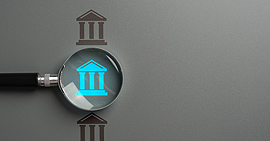I lost a cheque… What now?
08/07/2021
Although cheques are becoming increasingly out of use, they are still used as a means of payment, mainly in business but also when purchasing or signing up for certain goods and services.
If you lose a cheque, the first thing you need to do is notify the branch of the drawee bank that issued it and is responsible for paying it. The branch will then issue an internal stopping order, thereby reducing the risk of it being cashed by a third party (which is particularly high in the case of bearer cheques).
But beware! This action on the part of the bank does not guarantee that the cheque will not be paid to a third party. To make sure that this does not happen, you must bring proceedings before a court (Article 154 of the LawAbre en ventana nueva on negotiable instruments) or a notary public (Articles 132 to 135 of the Law on voluntary jurisdiction).
Losing a cheque does not, in principle, imply losing the right to collect the money it represents. However, you should be aware that there is no rule compelling the bank to take legal action to attempt to redress the situation. Despite this, once they have been informed of the loss, banks collaborate as much as possible with their customers to avoid any possible damage ensuing from this situation.
Therefore, it will be up to you to take the appropriate legal action to try to prevent the cheque from being paid to a third party, recover the amount of the cheque and request that it be cancelled or its ownership acknowledged.
What if it is a banker’s draft?
When a banker's draft is issued, the drawer (the person signing the cheque) and drawee (the bank that must pay it) are the same. The stop payment request made by you (the payee or bearer) does not release the bank from its liabilities as the drawee of the cheque or draft.
However, the payee may stop payment of the cheque 15 calendar days from the issue date if it has not been cashed. If the cheque has been lost, it is advisable to take action to prove so.
Click here or more information on cheques.



